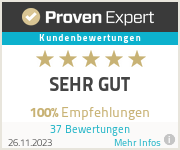Language Examinations
The number of foreign language tests, certificates and exams on offer is enormous and there are continually new products being introduced to the market. The aim of all these tests and exams is to prove just how well you can speak, write or understand a foreign language.

Obviously English is the market leader as this is essential these days for people in the working world. Second only to your job qualifications comes the ability to speak a foreign language and this is now a very important criteria when you are looking for a new job. Many recruiters start sifting the applicants based on the language skills alone. More and more universities also require proof of ability to speak a foreign language as part of the selection process.
Basically you have to decide between tests, which tell you exactly how good you are at the moment, and you
usually do not have to practice as they give you an instant result based on the European
Framework, and exams.
Exams are tests based on a syllabus which has to be learnt and for this you will have to take a language course so that you have covered all the subjects which may be tested in the exam. Such courses would be the BEC certificate courses from Cambridge - these exams test all four skills, reading, writing, speaking and listening.
The International Language School is happy to help you find your way through the maze of various exams and
tests and help you make the right choice to cover your needs. Our experts can provide all the advice
you need regarding an examination preparation course. The International Language School is a
testing centre for the University of Cambridge and can advise you on any questions you have regarding tests or
exams. Just phone us to find out what we can offer you!
Guided learning hours
Cambridge ESOL is often asked about the number of study hours required to reach a certain examination level. It is not possible to give a categorical answer to this, as hours of study required will vary depending upon several factors such as the candidates’ language learning background, the intensity of the study, the inclinations and age of the individual as well as the amount of study/exposure outside of lesson times. The following figures are, however, sometimes quoted as an approximate guideline:
| Common European Framework | Guided Learning Hours |
|---|---|
| A2 | approximately 180–200 |
| B1 | approximately 350–400 |
| B2 | approximately 500–600 |
| C1 | approximately 700–800 |
| C2 | approximately 1,000–1,200 |







